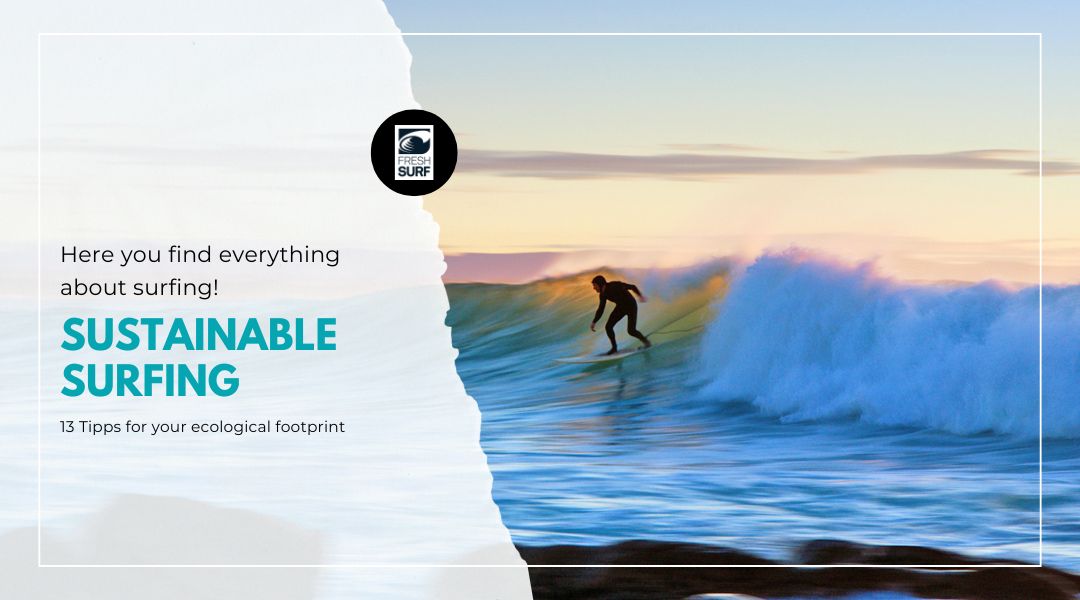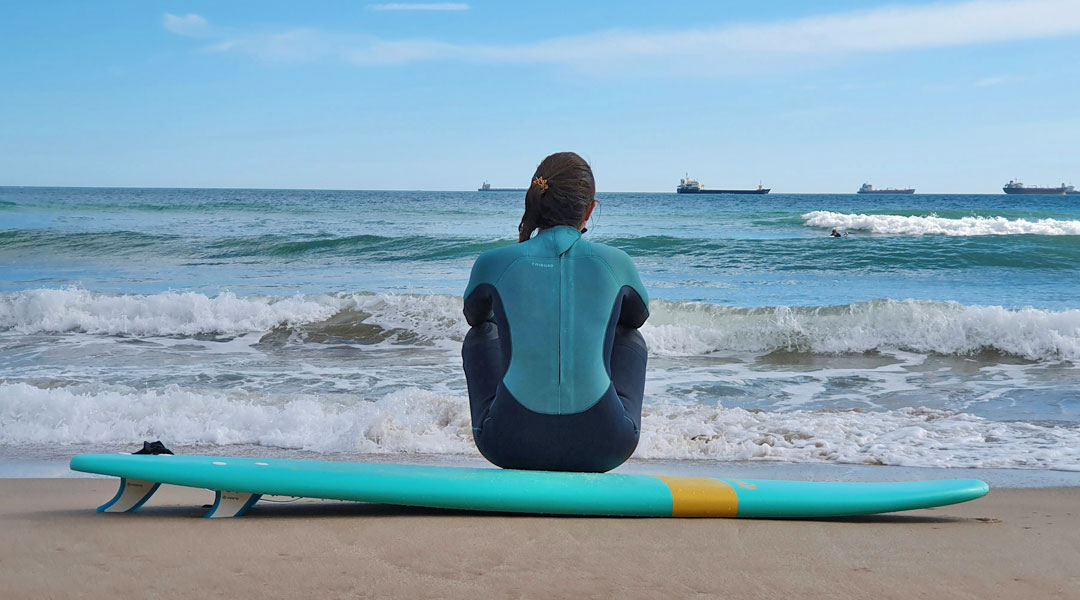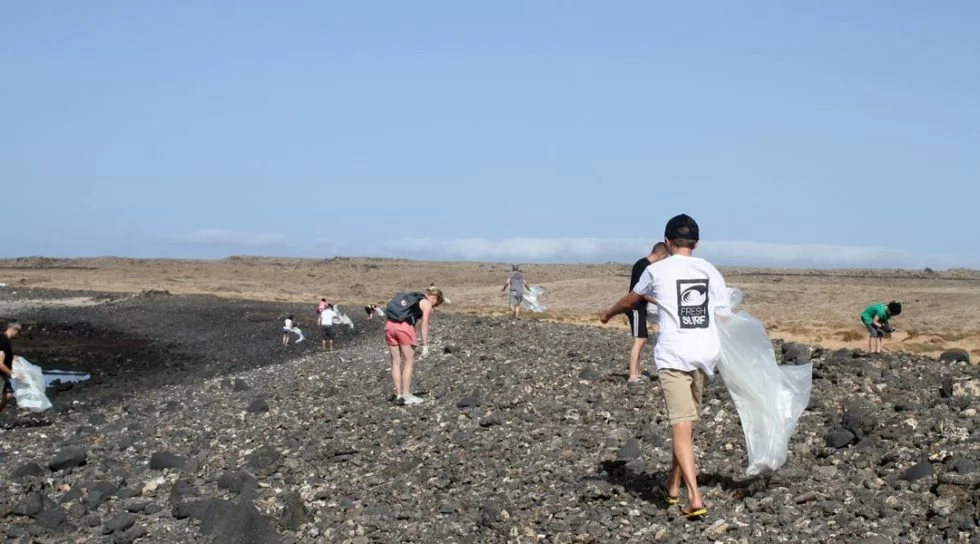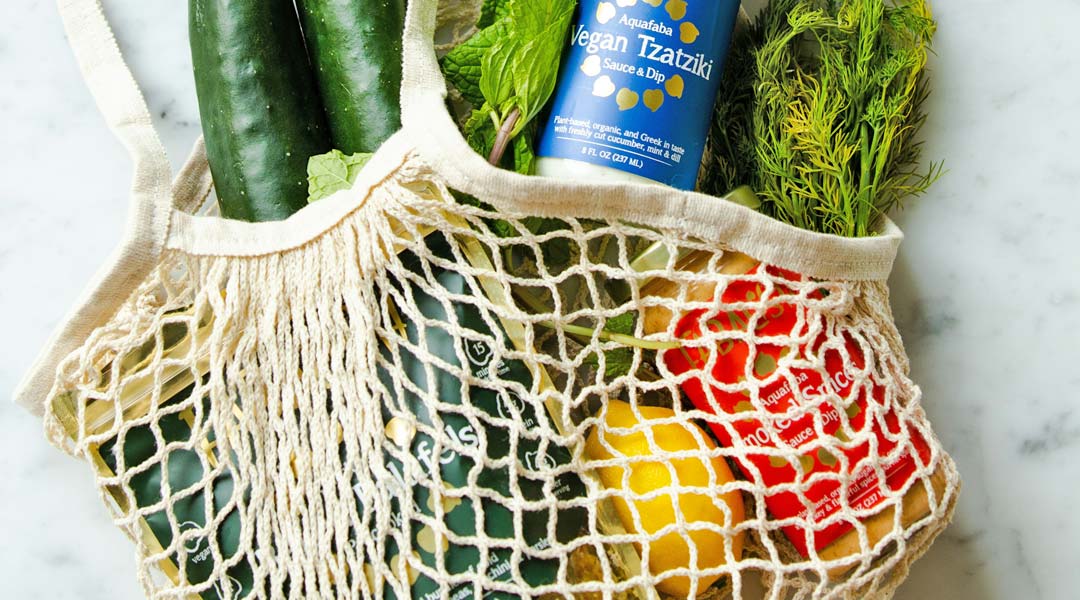
Clear water, endless waves and the freedom that only surfing can offer – we all share a love of the sea. But what we must not forget is our impact on the environment and the oceans that we all need and love. Therefore, environmentally conscious surfing should be a priority for all of us. Here we share a few practical tips on how we as surfers can not only find the best waves, but also minimise our ecological footprint.

Sustainable Surfing
Sustainable destination and eco-friendly journey
Many surfing enthusiasts in Europe do not have the luxury of living close to the sea. Therefore, a longer journey is usually part of surfing. But you can also plan your journey to be as environmentally friendly as possible.

For destinations in France or Spain, you can travel overland. The most environmentally friendly option is to travel by train or with a surf coach, which is offered by many surf camps. If you can’t avoid travelling by plane, for example to Fuerteventura, Bali or Sri Lanka, you can at least reduce your carbon footprint by offsetting your flight. To do this, you donate a certain amount to a charitable organisation that uses the money for sustainable projects. You can do this with atmosfair or myclimate, for example.

Sustainable Surfing
Environmentally friendly surf equipment
For environmentally conscious surfing, it is essential to use sustainable surfing equipment – from surfboards and wax to wetsuits.
Surfboards
Conventional surfboards made of polyester resin and a polyurethane foam core have the advantage that they are light, durable and easy to repair. Unfortunately, however, neither the production nor the material is sustainable: toxic vapours are produced during their construction and recycling is hardly possible. This is why more and more manufacturers are trying out more environmentally friendly materials such as wood, bamboo or cork, or are focussing on more ecological production.
If these sustainable options are too expensive for you, there is always the option of buying a second-hand surfboard. Even used surfboards can still work perfectly, you save money and no new resources have to be used.
Dein Surfwachs
The main component of many surf waxes is paraffin, which is a by-product of petroleum processing and is not biodegradable. They also often contain other chemical substances that are just as harmful to the environment.
This is why some companies are now trying to produce surf wax in a more environmentally friendly way and are focussing on natural ingredients such as beeswax. It is important that your environmentally friendly surf wax does not contain paraffin, palm or soya oil and is free from chemical and synthetic substances. In addition to the ingredients, attention should also be paid to fair production, recycled and environmentally friendly packaging and short transport routes.
We can recommend the following surf waxes: ‘Waxzam’, ‘Greenfix’, Rob Machado’s Organic Blend Surf Wax and Matunas’ Organic Wax. The great thing is that these waxes are just as affordable and of the same high quality as conventional surf waxes.
Dein Wetsuit
Neoprene wetsuits are essential in many surfing areas to avoid cooling down while surfing. However, they are not usually sustainable: the plastic neoprene is made from fossil petroleum and the wetsuit is not biodegradable.
An environmentally friendly alternative to this are wetsuits that do not use neoprene and instead use natural and/or recycled materials. Patagonia is a pioneer in this field, having produced the first wetsuits made from the desert plant Guyale and using hardly any petroleum.
Tip 1: Take good care of your wetsuit so that it lasts longer. To do this, you should always rinse out the salt water after surfing and not leave it to dry in direct sunlight.
Tip 2: Broken wetsuits can be repaired. So you don’t have to buy a new one if you find a small hole in your wetsuit.

Sustainable Surfing
Environmentally friendly accommodation
When choosing your accommodation for your surfing holiday, you can find out whether the surf camp or accommodation pays attention to sustainability. You can check the website to see whether they have made a statement on this and present a sustainability concept, for example. We at FreshSurf have also given a lot of thought to how we can contribute to a more sustainable world. You can find our sustainability concept here.

Sustainable Surfing
Ecofriendly sunscreen
Sun protection is essential to protect our skin from damage. However, we should also keep an eye on the environment. Commercially available chemical sun cream often contains harmful substances such as oxybenzone and octinoxate. Even small amounts attack coral reefs and cause corals to die. To protect both our skin and nature, you should use a biodegradable sun cream. The best option is a mineral sunscreen.

Sustainable Surfing
Support Beach Clean Ups
An easy way to always help is to support beach clean ups during your surfing holiday. Maybe you can find an organisation in your area that is planning the next beach clean-up. Alternatively, you can simply organise a beach clean-up at your favourite beach yourself – because once the ball starts rolling, there are always plenty of dedicated surfers who want to help keep our beaches clean.
At FreshSurf, we organise beach clean ups for our local beaches with the help of the Clean Ocean Project. The great thing about the Beach Clean Ups is that not only does the beach get clean again, but it’s also fun to help together!

Sustainable Surfing
Support the local economy
By buying from local suppliers instead of international chains and large investors, you can strengthen the local economy and contribute to the sustainable development of the region. This includes everything from accommodation and restaurants to surf shops and tour guides.
Sustainable Surfing
Sustainable shopping and eating
Sustainbale surfing also means shopping and eating environmentally conscious on your surfing holiday. To do this, you can buy regional and organic food, avoid environmentally harmful products and reduce your meat consumption.

Sustainable Surfing
Less Plastic/Zero Waste
For environmentally conscious surfing, you also need to behave sustainably away from surfing. To do this, you can avoid single-use plastic in your surfing day and opt for zero waste alternatives instead: reusable drinking bottles, cloth bags, Tupperware and reusable cutlery. The less plastic you use, the less ends up in the ocean and the more marine life is protected from plastic waste.

Sustainable Surfing
Ecofriendly Clothes & Co
When choosing clothes for your everyday life or swimwear, you can look out for sustainable materials and fair production conditions. There are many (surfer) brands that use environmentally friendly fabrics and produce ethically. With long-lasting clothing, you don’t have to keep buying new items and thus minimise the consumption of resources.

Sustainable Surfing
Sustainable care products
Environmentally friendly care products are another important aspect of eco-conscious surfing. Make sure you buy products without microplastics, made from natural ingredients and in environmentally friendly packaging. They not only protect the skin, but also the marine ecosystems by releasing fewer pollutants into the environment.

Sustainable Surfing
Respect the nature
As everywhere else, you should respect nature for environmentally conscious surfing. It is best to always stay on the signposted paths, observe signposts and closures and do not leave any rubbish behind. This is particularly important for dunes in order to preserve the natural coastline and protect the habitat of numerous plant and animal species. You should take care not to pull out or trample any plants in order to preserve the stability of the dunes.

Sustainable Surfing
Reduce water consumption
Efficient water consumption on your surfing holiday helps to reduce the environmental impact and conserve water resources. You can reduce your water consumption by taking short showers, for example, and only turning on the tap when you really need the water. You can also use water consciously overall, for example when washing clothes or cleaning equipment.

Sustainable Surfing
Sustainable transport
Locally, you can use public transport and explore the area on foot or by bike instead of driving. However, a car is usually required to get to the more remote surf spots. In that case, perhaps you can team up with others and share a car.

Conclusion: You too can surf eco-consciously!
Environmentally conscious surfing combines our passion for the waves with protecting the environment. It’s not about living and surfing in a perfectly sustainable way. However, we can all do our bit to protect nature and the oceans and take responsibility for our actions – even when surfing.
